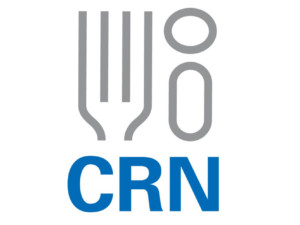According to the American Academy of Pediatrics (AAP), supplements are rarely needed in middle childhood.
This is because, it explains, the body needs vitamins and minerals in only “tiny amounts,” and most of the time, a balanced diet can usually present these in sufficient quantities.
But the problem is often that youngsters aren’t eating balanced diets, even if parents are providing them, because of poor appetite or erratic eating habits—or a highly selective diet such as a vegetarian or vegan diet. And while the AAP stresses that maximizing a child’s vitamin intake through food is ideal, sometimes a supplement is necessary.
“I think most parents are looking for meaningful, balanced supplement potencies to support optimal growth and healthy cognitive and physical development in their children,” said Marci Clow, MS, RD, senior director of product research at Rainbow Light Nutritional Systems (Santa Cruz, CA), noting that parents today, as they have in the past, are starting with a multivitamin for their children. “Considering today’s less-than-perfect diets, parents are interested in filling nutritional gaps and making sure their children are getting the vitamins and minerals they need for healthy growth.” “I certainly believe in supplementation for children, and it’s a category that is sometimes forgotten,” said Alice Fisher, owner of Aquarius 2000 Vitamins & Herbs, located in Winston Salem, NC. “I think it’s a tendency for moms to forget that kids need certain things because they’re growing, and that they’re not, by default, healthy because they’re young.” And even if children are receiving and accepting “perfect diets” perceived to be rich in any nutrient they may need, sometimes a multivitamin is still necessary to fill in the gaps. According to Alberto Galdamez, marketing and sales director at Coral LLC (Mount House, NV), parents are becoming more aware of the need for supplementation in children due to the technologies of the past few years focusing more on massive production and low prices rather than quality. “Our ancestors knew how to live. They knew how to rotate their crops and also allowed the land to rest.
The farming practices used in the past allowed for the soil to be rich in nutrients, microorganisms and minerals.
Food grown in this topsoil was full of nutrients as well. If we provided our kids with a well-balanced diet composed of organic fruits, vegetables, whole grains, etc., we wouldn’t need to supplement their diets,” he said. “But farming has not escaped this trend [of quantity over quality]; therefore, fruits and vegetables lack the nutrients needed by our bodies which include vitamins and minerals. As parents realize the seriousness of the situation, they are looking into providing their children with supplements that will fill the gap left by foods with no nutritional value.” Further, childhood obesity and diabetes in America, in addition to poor quality of school lunches and increased incidence of childhood asthma, allergies and immune reactions, have all raised eyebrows with parents concerned about nutrition, explained Ken Whitman, president of Peter Gillham’s Natural Vitality (Burbank, CA). “This is all part of the toxic environment we live in with about 80,000 chemicals, many of which find their way into our food supply,” he said. “And of course there are pesticides, insecticides, fungicides, hormones and antibiotics from industrial farms as well as GMOs. All of these issues have raised awareness of the importance of nutrition for kids.”
A Matter of Taste
One trend in the children’s supplement market today is an increased sensitivity to children’s picky palates, and not just so that they’ll enjoy the taste.
“Parents are looking for good quality supplements that their children will actually take,” said Whitman. “The first part of bioavailability is actually getting a supplement consumed in the first place, so form and taste are important.” Peter Gillham’s Natural Vitality’s Kids Natural Calm premium liquid multivitamin contains 24 organic fruits and vegetables along with vitamins, ionic minerals and amino acids, in addition to tapping into two trends in today’s children’s market: omega-3 supplementation and magnesium, which allows the formula to remain in a “calm focus” while boasting the benefits of a multivitamin.
Fisher has noticed that the taste of many supplements on the market today has improved, and that more children are willing to take them as a result. The store carries chewable children’s tablets in lieu of gummy forms or liquids, because of concerns with sugar.
On the other hand, Delia Payne, manager at St. Louis, MO-based Golden Grocer Natural Foods, has noticed that children have less patience for chewable formats. “Parents are looking for something that has a good taste and something that would be easy for them to give to their children,” she said.
“Companies are responding to these needs quite well. We’ve found that children don’t have the patience anymore for the little tablets we used to see so often, like the Flintstone vitamins. They sit around in the mouth and kids don’t like chewing them because they’re too hard. Companies have responded with liquid supplements that taste great, and also gummy formats.”
Keri Marshall, MS, ND, medical director at Gaia Herbs (Brevard, NC), agreed that taste is always a large issue when it comes to children. Gaia Herbs appeals to this need by offering several single liquid herbal extracts that are in an alcohol-free, glycerin base, which makes them sweet tasting and palatable for children, Marshall said.
In addition to the Gaia Kids line, which boasts new and vibrant labels that clearly depict that the products are for children, there are many Gaia products that can be tolerated by children in the appropriate dose, she continued.
Such products include Alcoholfree Astragalus Root, Licorice Root and Goldenseal Root. “Gaia Herbs also has a low alcohol Kava Kava Root, which is great tasting and can be used in small doses, such as 10 drops, to support normal levels of focus for children as well as to support an over excited nervous system,” Marshall added.
Rainbow Light is responding to the taste challenge with its kid-friendly gummy format. Gummy Bear Essentials® and Gummy Power Sours® Multivitamin & Multimineral formulas are naturally fruit flavored and sweetened with organic cane sugar. Tapping into the omega-3 trend is the company’s Gummy Omegalicious™ Omega-3 Formula, which delivers DHA and EPA to support brain health, memory and mood. Gummy Vitamin C Slices™ deliver 250mg of the antioxidant vitamin C in a sweet, tangy, natural tangerine flavor; Fiber Garden Gummies™ are sugar-free, sweetened with xylitol for dental health, and provide four grams Of fiber and the antioxidant equivalent of two servings of fruits and vegetables per single-serving packet to fill gaps in even the pickiest eater’s diet; and Gummy Get Well™ Soothing Herbal Drops are packed with immune boosters including elderberry and eucalyptus to support respiratory health and ease common symptoms including a sore throat.
“Finally, Vitamin D 400 IU Sunny Gummies™ are tasty citrus gummies that deliver 400 IU of vitamin D to support bone strength, calcium absorption, healthy nerves, muscles and immune function.
They are sweetened with natural orange flavor and organic cane sugar,” explained Clow.
“You can have the most effective product in the world, but unless it is a form that the child can easily swallow, such as a liquid, powder or something chewable, and it tastes good, most children will not take it,” conceded David Winston, RH (AGH), president of Herbalist & Alchemist, Inc. (Washington, NJ). The company offers a line of glycerites that can be taken by adults, but is also appropriate for children for two reasons: “First, they are very safe, and second, glycerin itself is sweet,” said Winston. “Glycerites are easy to mix into a juice or other liquid so children don’t mind taking them.”
Among the company’s other offerings is Healthy Kid’s Compound, a combination of echinacea, elderberry, lemon balm and orange flavor, to help support the immune system; Kid’s Calmpound Clycerite, which contains ingredients traditionally used by herbalists for insomnia, nervousness or agitation, but which have worked in practice for children with ADD or ADHD; and Kid’s Tummy ReLeaf, which contains catnip, ginger, chamomile, dandelion, lemon balm glycerites and a very small amount of peppermint essential oil, used for digestive upset from food or for stressinduced digestive upset, and especially when the result is either constipation or diarrhea, said Winston.
Communication Keys
Gaia Herbs’ Marshall explained that although sales of children’s supplements may be up, awareness among young parents isn’t quite as high as it could be. “In my clinical practice, I often see Baby Boomer aged adults looking for natural solutions for their grandchildren and I often encourage them to discuss herbal therapies as an option for their child and grandchild,” she explained, noting that at retail, it is important to make the children’s supplement section easy to find, with child-friendly looking products at eye level for both the child and parent. “Many young parents do not know that there are ‘child specific’ supplements available.”
Herbalist & Alchemist’s Winston stressed the need for communication, especially when it comes to children, as so many parents might be wary of supplements’ safety. “I think the most important merchandising idea when it comes to kids formulas is to let parents know that these products really are appropriate for children,” he said.
“There are products that I would not necessarily give to a child, and so letting parents know that this is a child-friendly Product, that this is a product the children can take and you’re going to have good results and ease of administration, I think is highly important.” To increase a parent’s exposure to the products on the market, Marshall recommended that retailers nip one of the main misconceptions in the bud: “A common concern is that their child, who may be a picky eater, may not take the dietary supplement,” she said. “When it is at all possible to offer a sample, that a parent is able to taste the product first themselves, it increases their confidence that their child would take it.” This is a tactic that works at Golden Grocer Natural Foods. Payne explained that she supports samples as much as possible by giving them out with a purchase, or sampling in store with children shopping with mom or dad.
“I have a section that is kid-specific, and I keep a large poster there,” said Payne.
“But if I can offer a sample to them and keep people exposed to the fact that children need supplementation, I will.”
Marshall explained that especially this month, when other retail outlets are marketing back-to-school clothes and school supplies, it is important to also market the concept of children’s wellness to kick off the school year. “This can be done with kids’ wellness themed floor displays and register displays of children’s’ supplements to encourage impulse purchase, as well as in-store demos for sampling,” she suggested. In addition, she said, sales of children’s products usually skyrocket during this time, when parents begin to ready their children for the new school year, or begin to notice that children are coming down with nasal congestion either from fall allergy season or the beginning of cold and flu season.
One tip offered by Rainbow Light’s Clow is to cross merchandise children’s products with women’s supplements to create a “mommy and me” display. “Bright, colorful signage that appeals to children and adults alike is another way to draw attention to children’s products,” she added.
Ultimately, though, it is important for Any children’s health merchandising plan to address the idea that there is a need for supplementation. “Many think supplements are intended to be for people that are already suffering from an illness. We tend to think that children are healthy, and therefore they don’t need supplementation,” said Coral LLC’s Galdamez.
“In the past, we never heard of children suffering from diabetes, heart disease and many others; those were all common in adults. The common denominator here is poor nutrition; we need to supplement our kids’ diets and most importantly, encourage them to eat healthily.”
by Melissa Kvidahl | August 11, 2010
Don't Miss Out!
Industry Professionals
Stay Informed!
Stay informed about the latest health, nutrition, and wellness developments by signing up for a FREE subscription to Vitamin Retailer magazine and digital newsletter.
Once subscribed, you will receive industry insights, product trends, and important news directly to your doorstep and inbox.












